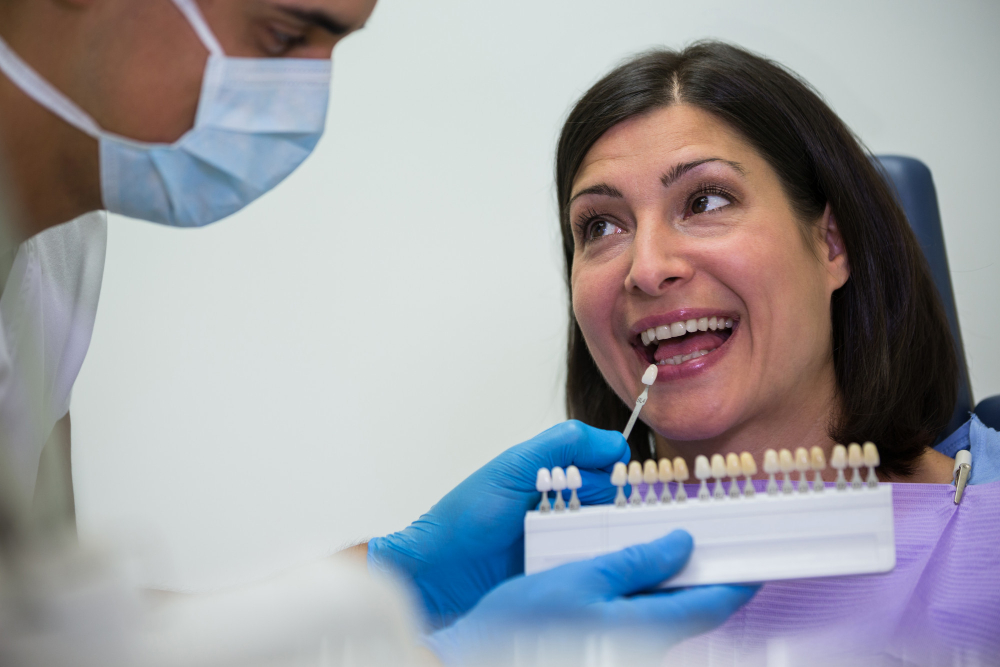Dental Crowns

Dental crowns are a versatile and effective solution for restoring damaged teeth, improving their function, and enhancing their appearance. They are often used when a tooth is severely decayed, cracked, or weakened, providing a protective and aesthetic covering.
A dental crown, also known as a cap, is designed to encase the entire visible portion of a tooth, restoring its shape, size, strength, and appearance. Crowns can be made from various materials, including porcelain, ceramic, metal, or a combination of these. Porcelain and ceramic crowns are popular for their ability to match the natural color of teeth, offering a seamless and aesthetically pleasing result. Metal crowns, often made from gold or other alloys, are known for their durability and are typically used for molars.
The procedure for placing a dental crown usually requires two visits to the dentist. During the first visit, the dentist prepares the tooth by removing any decayed or damaged areas and shaping it to fit the crown. An impression of the tooth is then taken to create a custom crown that fits perfectly. A temporary crown may be placed to protect the tooth while the permanent crown is being made.
Once the permanent crown is ready, the patient returns for the second visit. The dentist removes the temporary crown and fits the permanent one, ensuring it aligns correctly with the bite. The crown is then securely bonded to the tooth with dental cement.
Dental crowns are highly beneficial as they provide strength and protection to compromised teeth, improve the appearance of discolored or misshapen teeth, and restore normal function, allowing for comfortable chewing and speaking.
In summary, dental crowns are an excellent option for restoring damaged teeth, offering both functional and cosmetic benefits. They help maintain oral health, enhance the appearance of your smile, and ensure the longevity of your natural teeth. Regular dental check-ups and good oral hygiene practices are essential for the longevity of dental crowns.
